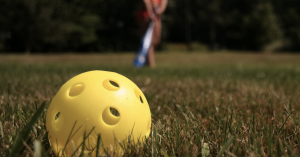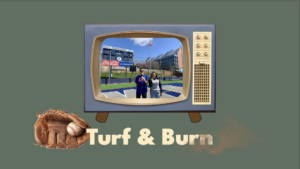You’re twelve years old, sitting in the dugout of your local baseball field listening to your eccentric little-league coach give his post-game speech.
“That game turned into a barn burner right after Jimmy dropped that can of corn! It’s not our fault that they got a Baltimore Chop, but we definitely need to work on those Texas Leaguers. And then next person that gets hung up is getting benched!”
You and your young teammates stare blankly back at your coach as the sweat on his forehead begins to recolor his cheap hat that only halfway covers his wild hair. You don’t understand anything he is saying…after all, what in the world does corn have to do with baseball?
Okay, maybe your little league coach didn’t talk exactly like this–chances are, he wouldn’t even know the meaning behind much of this elite and elusive baseball jargon. But every once in awhile, you find yourself asking why your parent started talking about cheese and pickles while watching a Dodgers game, or what a ducksnort has to do with getting on base (especially when the game is, say, in the Bronx, where ducks are less than abundant.
So, in honor of this weekend being the opening to spring training, here is a comprehensive guide to some of baseball’s strangest lingo–when this season begins, you will finally understand all of those strange phrases uttered by announcers, little-league coaches and parents alike. And who knows, you might even be able to join in on the fun, calling out cement mixers and chin music as you see them like an old pro.
Terms common in the little league setting, which you may vaguely recollect hearing as a child, are the snow cone, the pickle (or getting hung up) and the always-laughable olay! The snow cone metaphor probably makes more sense than many others–it refers to a catch, often a back-peddling, outfield snag or the trapping of a wild grounder, in which half of the baseball peeks out of the glove’s webbing, inducing the image of a baseball snow cone. A little less obvious is getting caught in a pickle, or getting “hung up”–when you make a base-running blunder and are caught between two amused infielders, taking turns chasing you with the ball until you surrender to their tag. And, of course, who could forget their fellow teammates giddily screaming OLAY! when an unfortunate fielder attempted to make a cross-body snag, only to come up empty and almost assuredly receive a frustrated lecture from their coach upon reaching the dugout.
While these baseball phrases are all equally strange, they are fairly common in the vocabulary of our generation. Other phrases, however, are less famous–and, truthfully, much weirder.
My personal favorite, for all you outfielders, is a can of corn–a phrase referring to a routine, easy-to-catch pop-fly. According to baseball history, nineteenth-century grocers would easily catch cans of corn that they would push off shelves with sticks. In this context, of course, the phrase makes sense–but in 2016? Not so much. A can of corn is not to be mistaken, of course, for a “ducksnort” one of those pesky pop-flies that falls right in between the infield and outfield, usually resulting in an undeserved base-hit. Add a few “ropes” into the mix (a line-drive, usually a single) and perhaps a “Baltimore chop” (a single resulting from a big bounce over the infielders’ heads) and you might just have yourself a barn-burner–a high scoring, broken-open game.
Pitchers have their strange jargon as well–throw some blazing fastballs, and you’ve got yourself some “good cheese.” Throw those fastballs high and inside in order to prevent the batter from encroaching on the strike-zone, or perhaps to send a team a warning, and you’ve got “chin music.” And everyone knows a little-leaguer who was taught the art of the curveball just a little too young, got a little too excited, and began to throw pitches with all the spin of a breaking ball but that just never quite made it out of the strike zone–in other words, cement mixers. Like the snow cone, the cement mixer is another of the few phrases which aesthetically have some sort of resemblance to their baseball counterparts.
And last but certainly not least, don’t flip when an older family member starts speaking of your long-lost wicked relative “Uncle Charlie,” of whom you never met nor knew existed–chances are, you are watching Clayton Kershaw pitch, and your relatives are simply referring to one of Kershaw’s wicked curveballs.





